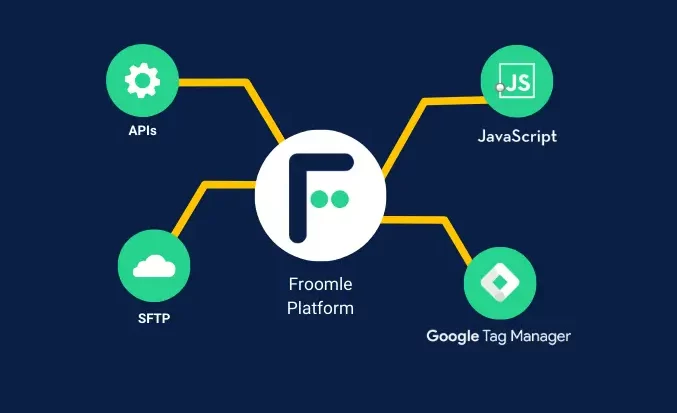This spring, make sure to collect this golden egg in your basket, because it may just turn your business into gold as well. Take it from our Members of Froomle, who are experts on the matter: AI is here to stay, so you'd better benefit from it. Matthias Verstappen, DevOps Engineer tells us more.
Basically, AI is almost as old as computer language itself. It’s just that it has been sleeping for the first few decades of its life, since there was not enough computational power to make it think for itself by making a lot of calculations. When that computational power eventually came up to speed in the nineties, there was not enough data around to make it work. And you really need both factors for AI to come to life. Even with the rise of the internet it took a few years to gather enough information online to actually get the ball rolling, but now there is no way back!
It won’t take long until you’ll notice it appearing in your daily life to help you work faster and more efficiently as well. For example, expect AI to pop up in your mailbox or your calendar quite soon! I personally cannot wait for the day when AI will automatise the trivial tasks of my life, like making an appointment at the hair dresser’s salon – which I’m told I don’t do often enough now. I could ask my AI assistant to make the call, which will then interact with another AI robot or an actual human being to book an appointment, look into my calendar and let me know where I’ll be needed at which point in time. To completely take the hassle away! This might sound like science fiction to us now, but actually is a very realistic scenario for the near future.
Froomle was founded in 2016, when we started with our recommendation concept hopping from test case to test case. Slowly but surely, we scaled up to an actual platform and standardised product to come to the grown up company we are now – so to speak. On one hand, we use machine learning AI as a specific part of our products, and on the other hand generative AI to create them. Our core product is to offer recommendation systems based on homemade algorithms that were developed by our founders connected to the University of Antwerp. The power of those algorithms is that they scan through all kinds of user behaviour data to find similarities that provide insights into which information presents itself as most interesting for a certain type of user. In other words, the way people use your website, app, etc. enables us to make a recommendation on what should be shown. We work closely together with our clients in order for them to attain the exact results they weren’t able to find in the plethora of data scattered around the internet. For example, you’re a news platform and you wish to find information about what’s going on in a specific region. We make sure to find the exact content your target audience is looking for, resulting in more people spending time on your platform, who in return are benefited as well by consuming information they actually like.
Next to using machine learning AI for our core product, we have started to use generative AI to actually develop our software. Which has made us at least 25% more efficient over the course of the past six months.
Most definitely. I like to compare the evolution of AI with the implementation of the computer into our personal and professional lives; not every part of your day may require for you to use a computer, but it has undeniably found its way into every industry nonetheless. We obviously still have a long way to go in terms of standardisation and optimalisation, but we can benefit so unbelievably much from automatising whichever time consuming task presents itself to us. From insurance companies who can use AI for the onboarding of new clients or making up risk analyses, to doctors who can rely on robots to make a preselection on medical cases in order for them to focus on patients who require more personal attention. I will even admit that I turned to AI myself in preparation for this little interview, to quickly come up with some interesting things to talk about. You could turn to AI to save you the hassle of writing down an article. When used correctly, AI is a great tool to help us work more effectively. I understand how some people shy away from the idea of a robot making important decisions, because errors are never 100% ruled out. But to be very honest – computers are far more accurate than people are.
